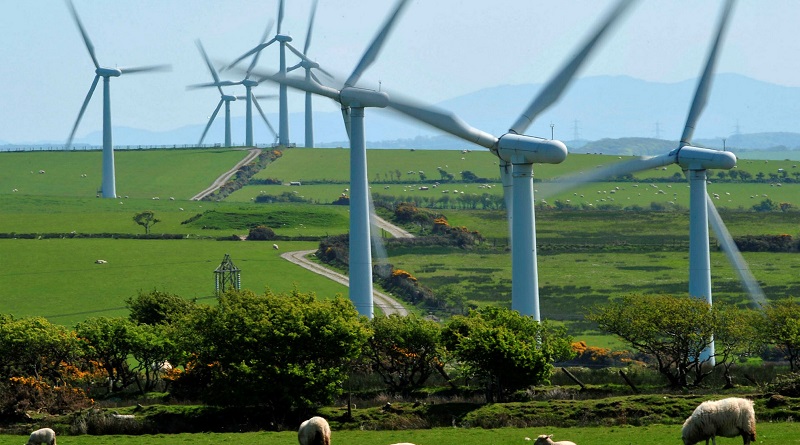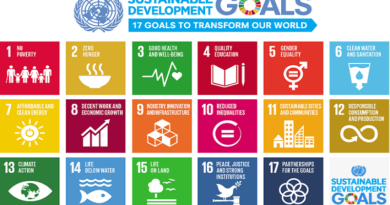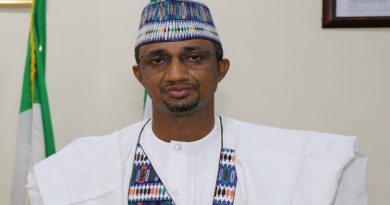Collective responsibility needed to drive energy transition, financing- Stakeholders
Stakeholders in the environment sector have called for collaboration between the public and private sectors in the financing of energy transition in Nigeria.
They made the call at the maiden edition of the Africa Climate Forum 2023 on Tuesday in Abuja, with the theme “Powering the Future: Financing Energy Transition for Sustainable Progress. ”
The News Agency of Nigeria (NAN) reports that the forum was hosted by the Global Centre for Law, Business and Economy (GCLBE).
Sen. Seriake Dickson, Senate Committee Chairman on Climate Change, said collective responsibility was needed to drive energy transition and its financing.
Dickson said that transitioning to a sustainable energy future was not an easy task, however, it was a worthwhile endeavor.
“It requires massive investment in clean energy infrastructure, investment in innovative technologies, and a shift in our energy consumption patterns.
He said the transition to clean energy was not just about mitigating the effects of climate change but also presented enormous economic potential if properly harmonised and financed.
Dickson, however, said for this to be achieved, the forum needed to look at possibilities that promote Public Private Partnerships (PPPs), incentives as subsidies, and issues relating to carbon pricing.
“We have to copy from what others have done successfully in the area of green bonds, technology and innovation, promotion of education, and creating awareness.
“These must be tied up in a national cohesive policy for renewable energy moving forward.
He called for synergy between all related Ministries, Departments, and Agencies, especially the National Council on Climate Change and the Ministry of Environment.
Dickson said financing the energy transition would require legislative intervention and, therefore, pledged the legislature’s commitment to collaborate with all stakeholders.
“We will ensure that any legislative intervention that is needed to regulate the legal framework that will underpin financing, we will be willing to work with stakeholders.
“If it means strengthening existing legislations or proposing and working on new legislations to bring it at par with what obtains globally.
“Essentially as we know cannot make any headway unless we create an environment that will attract the needed financing for this energy transition,” he said.
Dr Salisu Dahiru, the Director-General, National Council on Climate Change, said Nigeria was not going offshore” cap in hand” looking for funding for the basic things the country could do at the national level.
Dahiru said the green bonds established by the Nigerian government through the Ministry of Environment and channeled through the Department of Climate Change provided additional in-country funding.
He said the funding was not only for the energy sector but for all green projects that could help transform Nigeria and improve its economy.
“We are confident that the proceeds of these green bonds will help bridge the funding gap.”
He said when Nigeria fully implemented its strategies focused on the energy transition, the challenges of financing the energy transition plan would also be greatly improved.
“What is necessary is to have the political will and support, both from the public and private sector particularly the private sector which is expected to lead in this charge.
“Let me assure you all that Nigeria’s energy transition commitment is robust, timely, just and inclusive,
“It is hinged on creating green jobs, green growth, and green sustainability as we journey toward the net zero by 2060,” he said.
Dr George Nwangwu, the Director-General, GCLBE, said the forum aimed to debate some of the challenges affecting energy transition across Africa and collaboratively devise solutions.
Nwangwu said the global community was seeking ways to transit to renewable energy sources to save the planet.
He, however, said if the transition was not handled properly in Africa, it could potentially pose an existential threat to the continent, hence the forum.
“We believe that the energy transition in Africa is going to be driven by the private sector and the resolutions reached in the Nairobi Summit are also going to be implemented by the private sector in Africa.”
Nwangwu said the forum would address issues on energy access, finance, economic concerns, and climate justice.
” The big question which the conference must address, therefore, is how Sub-Saharan Africa will meet the escalating demand for energy while also reducing greenhouse gas emissions.
“Africa has limited resources to fund its energy transition plans. It is, therefore, our task in this forum to find financing models that work in Africa.”
NAN reports that the GCLBE is a leading international organisation dedicated to advancing sustainability, promoting legal excellence, and fostering economic development.
By Okeoghene Akubuike




